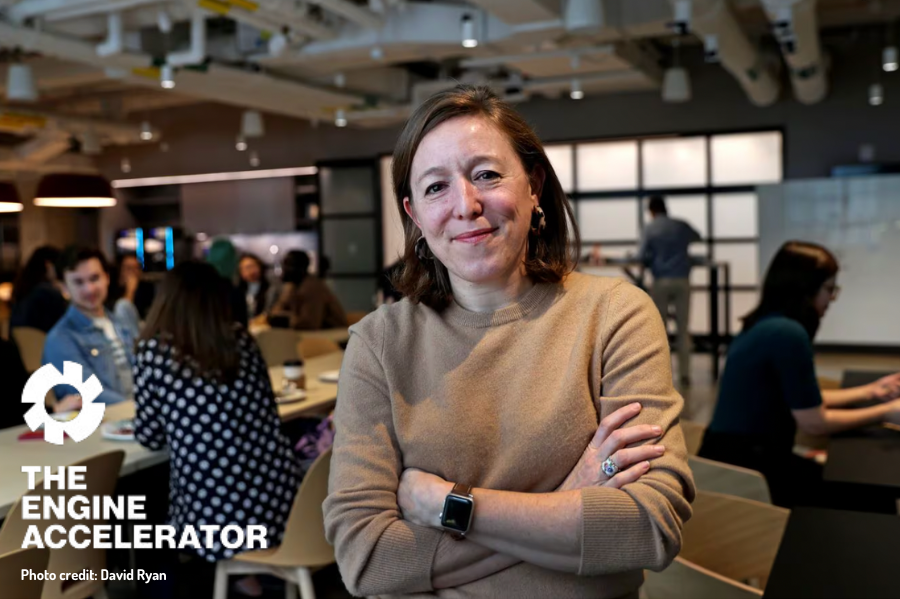The KSA connected with Emily Knight, Managing Director of The Engine, on challenges facing Tough Tech startups, what makes founders successful, and inspiring stories from their program. Knight also shared her thoughts on the future of startups and collaboration for innovation. Read the full interview below.

What are some of the biggest challenges early-stage companies face in today’s economic climate?
The biggest needs for Tough Tech founders are time, infrastructure, policy alignment, and access to capital. Scientific and technical breakthroughs that change the world don’t happen overnight. In fact, it can take years to innovate in industries like climate and clean energy, and that’s before founders have even translated their science into a commercial solution. Equipment and lab space can also be expensive and hard to come by, not to mention the funding needed to achieve the milestones to succeed and scale. The Engine Accelerator supports Tough Tech founders with development programs, infrastructure suited for advanced scientific research, and a network of partners, policymakers, and investors steeped in long-term, world-changing innovation.
In your experience, what are the essential qualities or characteristics distinguishing successful startups from those struggling?
A typical Tough Tech startup is led by Principal Investigators (PI), post-doctorates, collegiate faculty, or scientists or engineers of some sort working on a breakthrough in a field like human health, climate change, or clean energy. Not only are they technically advanced but they must be entrepreneurial and aspire to be a founder of a commercial solution to a societal challenge. However, I believe the most important qualities of a Tough Tech founder are passion and determination because as I mentioned, some of these breakthroughs take several years to accomplish. Once they do, the work is just beginning, and they must then find a way to translate and scale an innovation that could improve the way people live for the foreseeable future. That said, you better have a deep conviction for what you are trying to achieve if you want to stick it out in a Tough Tech industry.
Can you share one or two success stories of companies that have gone through The Engine Accelerator program?
A Tough Tech success story that continues to play out is Lydian Labs, who are deploying sustainable fuel alternatives derived from CO2, rather than chemicals and oil. The Lydian team moved into our 750 Main facility in the fall of 2022. With the infrastructure and support here, they were able to put their money into critical talent and R&D needs, and less into utility bills. As one of the earliest residents of the building, Lydian has also grown leveraging our educational programs, public affairs support, network and more.
Most recently, we’re excited to welcome a new group of MIT researchers, who will be joining us in the coming weeks. We can’t say too much yet, but the team recently received an ARPA-H grant to develop ingestibles that deliver mRNA and electric stimuli to treat metabolic disorders such as diabetes, obesity, and other similar conditions. The Engine is poised to help them and countless future Tough Tech teams however we can in their groundbreaking journeys.
What are your thoughts on the future of the startup ecosystem?
I believe innovations that will improve society will come from the private sector, but not without partners and investors who deeply understand the potential and challenges of Tough Tech projects. That actually includes government funding and policy support, which is integral to advancements in the industries we serve. A recent notable success was the CHIPS and Science Act, which will provide upward of $280 billion to propel American innovation. The bill includes a budget for the National Science Foundation (NSF) to fund regional Tough Tech Engine hubs throughout the nation, which will receive tens of millions, and in some cases over a hundred million dollars to support their local innovation ecosystems. The Engine Accelerator was awarded a grant and the opportunity to support these regional innovation hubs’ strategies with our deep expertise and partnerships in Tough Tech industries. We are truly honored to help lead the nation with this important initiative, and can’t wait to see the magic that comes out of the program.